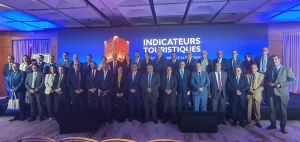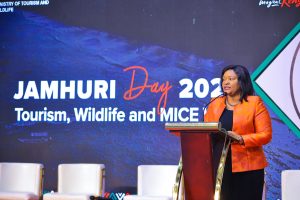The Limpopo Investment Conference 2024, held in Polokwane from November 7 to 8, gathered industry leaders, government officials, investors, and stakeholders for two days of insightful dialogue, partnerships, and opportunities aimed at shaping the future of the province. This year’s conference highlighted Limpopo’s immense potential, not only as a mining and industrial hub but also as a key player in Africa’s broader economic and tourism landscape. With the overarching theme of “Transforming Limpopo for Sustainable Growth,” the event served as a critical platform for discussing investment prospects, infrastructure development, and industrialization, all of which hold promising implications for the region’s tourism sector.
The conference brought together leaders from various sectors to deliberate on Limpopo’s role within the Southern African Development Community (SADC) and Africa Continental Free Trade Area (AfCFTA) frameworks. Discussions were centered around sustainable resource extraction, the future of green energy, beneficiation industries, and the development of special economic zones (SEZs). As the province continues to build on its status as a mineral-rich area, there are clear implications for tourism professionals looking to align their strategies with the region’s broader industrial and infrastructure developments.
The conference kicked off with President Cyril Ramaphosa’s keynote address delivered virtually, marking a significant moment in the conference. His words focused on Limpopo’s potential to become a strategic economic player, not just within South Africa, but across the African continent. President Ramaphosa underscored the importance of industrial development, particularly in mining, manufacturing, and agriculture, and how these industries could provide the foundation for a more diversified economy in Limpopo. His call for increased investment was met with enthusiasm, as the President framed the province’s growth in line with national goals of industrialization and job creation.
In his address, the President also highlighted the province’s growing potential as a logistics hub, pointing to the development of the Musina-Makhado Special Economic Zone (SEZ) and the region’s central role in Africa’s trade networks. As the SEZ attracts investments, the tourism sector is expected to benefit from improved infrastructure and greater connectivity, which will provide more access to Limpopo’s unique attractions.
Following the President’s address, Premier Dr. Phophi Ramathuba took to the stage, emphasizing the province’s readiness to leverage its rich mineral resources and diverse industries to fuel sustainable growth. Her remarks were particularly significant in underscoring the importance of collaboration between government, business, and communities. Ramathuba outlined Limpopo’s plans for leveraging both local and foreign investments to foster a dynamic and sustainable economy. Her speech also touched on how investments in sectors like renewable energy, industrialization, and mining will help diversify the local economy and, by extension, enhance the tourism sector.
The second day of the conference shifted focus to specific sectoral discussions through a series of panel discussions and industry-specific talks. A major highlight was the discussion on mineral beneficiation, with representatives from the Department of Mineral Resources, DMT Kai Batla, and Seriti Resources stressing the importance of moving beyond raw extraction to establish processing plants in Limpopo. This shift will not only create more local jobs but will also improve the province’s economic profile, presenting new opportunities for tourism development, particularly in areas with mineral-based heritage and industrial tourism.
Green energy and its relationship to mining were also significant themes during the conference. The conversation turned to Limpopo’s emerging role in the green economy, particularly through solar power and green hydrogen initiatives. Industry experts and renewable energy companies discussed the province’s capacity to generate clean energy, which will contribute to a more sustainable future for Limpopo. With Limpopo’s unique positioning as a hub for green energy, tourism opportunities in eco-tourism, sustainable resorts, and green-certified hotels are expected to rise.
A major focus of the day was also the Musina-Makhado SEZ, which remains at the forefront of Limpopo’s industrial transformation. The SEZ is designed to facilitate business operations, offer investment incentives, and ensure smooth access to key logistics corridors. Discussions revolved around how this development is set to create thousands of jobs and stimulate regional economic growth. For the tourism sector, these advancements promise improvements in transport infrastructure, including road networks and international logistics, which could open new avenues for regional and international tourism.
The final address came from Ms. Judith Nemadzinga-Tshabalala, Deputy Minister of the Department of Mineral Resources and Petroleum. She emphasized the importance of mining and natural resources for driving industrial development in Limpopo. Her speech highlighted the government’s efforts to create an enabling environment for investors, stressing that the department is committed to sustainable mining practices that balance economic gains with environmental preservation.
Tshabalala also spoke about the government’s role in promoting beneficiation, local industry development, and job creation. She encouraged the private sector to partner with government entities to establish value chains that would benefit both local communities and industries. For tourism professionals, this dialogue about sustainable industrial development presents exciting opportunities to create new tourism offerings around these industries, such as heritage tours that integrate industrial landmarks and eco-friendly practices.
As the conference drew to a close, it was clear that Limpopo’s future is closely tied to its ability to harness its natural resources and industrial potential while remaining committed to sustainable development. The province’s economic transformation will require continued collaboration across sectors, with tourism professionals being key stakeholders in shaping Limpopo’s emerging identity as a region that blends industrial innovation with natural beauty.
The Musina-Makhado SEZ and other infrastructural projects will undoubtedly make Limpopo more accessible, improving its appeal to business travelers and tourists alike. The emphasis on green energy and beneficiation aligns with global trends toward sustainability, which is increasingly important for today’s conscious traveler. As Limpopo’s economy diversifies, there is a growing need for tourism businesses to adapt to new market demands, focusing on eco-tourism, heritage tourism, and experiential travel.







